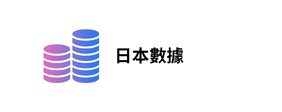Beyond the commercial sphere lie nefarious entities Governments and Surveillance that collect phone data for exploitative purposes.
-
Tactics:
-
Malicious app installations
-
Fake VPNs and security tools
-
Smishing (SMS phishing)
-
Rogue app stores
-
These actors may steal SMS messages, call logs, keystrokes, and even germany phone number list activate your microphone or camera without your knowledge.
Government surveillance is another layer in the data collection matrix.
-
Tools:
-
Bulk metadata collection programs (e.g., PRISM by NSA)
-
Stingray devices to intercept mobile traffic
-
Partnerships with telecom providers
-
-
Justification:
-
National security
-
Law enforcement investigations
-
Authoritarian regimes often go the hidden collectors further, embedding surveillance mechanisms directly into telecom infrastructure or mandating backdoor access to encrypted apps.
Case Studies: When Collectors Are Exposed Governments and Surveillance
Case 1: Weather App Selling Location Data
In 2018, the popular Weather Channel app was found to be selling precise location data to hedge funds and marketers. The app disclosed it was using location for forecasting — but not for commercial resale. This led to lawsuits and renewed calls for transparency.
Case 2: Facebook’s Onavo VPN
Facebook’s Onavo VPN claimed to offer secure browsing but was database data actually a data siphoning tool. It recorded app usage habits, helping Facebook identify rising competitors like WhatsApp — which it later acquired. Onavo was removed from the App Store after public outcry.
Case 3: Grindr Sharing HIV Status
Grindr, the LGBTQ+ dating app, was exposed in 2018 for sharing users’ HIV status and location data with analytics firms. Though anonymized, the data was detailed enough to potentially re-identify users.
